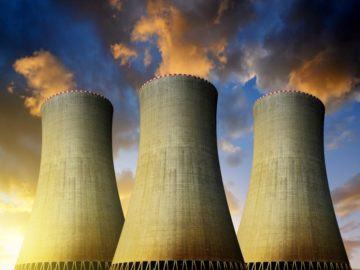Paper by Simon Friederich and Maarten Boudry:
 In recent years, there has been an intense public debate about whether and, if so, to what extent investments in nuclear energy should be part of strategies to mitigate climate change. Here, we address this question from an ethical perspective, evaluating different strategies of energy system development in terms of three ethical criteria, which will differentially appeal to proponents of different normative ethical frameworks. Starting from a standard analysis of climate change as arising from an intergenerational collective action problem, we evaluate whether contributions from nuclear energy will, on expectation, increase the likelihood of successfully phasing out fossil fuels in time to avert dangerous global warming. For many socio-economic and geographic contexts, our review of the energy system modeling literature suggests the answer to this question is “yes.” We conclude that, from the point of view of climate change mitigation, investments in nuclear energy as part of a broader energy portfolio will be ethically required to minimize the risks of decarbonization failure, and thus the tail risks of catastrophic global warming. Finally, using a sensitivity analysis, we consider which other aspects of nuclear energy deployment, apart from climate change, have the potential to overturn the ultimate ethical verdict on investments in nuclear energy. Out of several potential considerations (e.g., nuclear waste, accidents, safety), we suggest that its potential interplay — whether beneficial or adverse — with the proliferation of nuclear weapons is the most plausible candidate.
In recent years, there has been an intense public debate about whether and, if so, to what extent investments in nuclear energy should be part of strategies to mitigate climate change. Here, we address this question from an ethical perspective, evaluating different strategies of energy system development in terms of three ethical criteria, which will differentially appeal to proponents of different normative ethical frameworks. Starting from a standard analysis of climate change as arising from an intergenerational collective action problem, we evaluate whether contributions from nuclear energy will, on expectation, increase the likelihood of successfully phasing out fossil fuels in time to avert dangerous global warming. For many socio-economic and geographic contexts, our review of the energy system modeling literature suggests the answer to this question is “yes.” We conclude that, from the point of view of climate change mitigation, investments in nuclear energy as part of a broader energy portfolio will be ethically required to minimize the risks of decarbonization failure, and thus the tail risks of catastrophic global warming. Finally, using a sensitivity analysis, we consider which other aspects of nuclear energy deployment, apart from climate change, have the potential to overturn the ultimate ethical verdict on investments in nuclear energy. Out of several potential considerations (e.g., nuclear waste, accidents, safety), we suggest that its potential interplay — whether beneficial or adverse — with the proliferation of nuclear weapons is the most plausible candidate.
More here.
